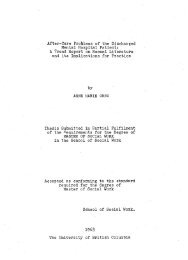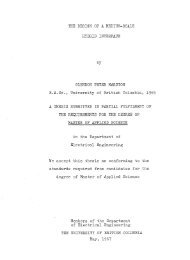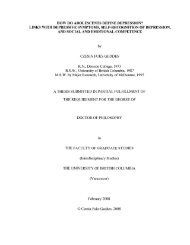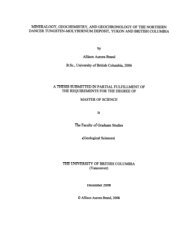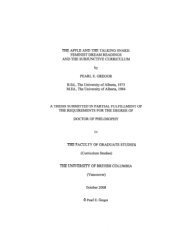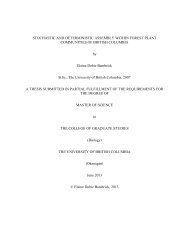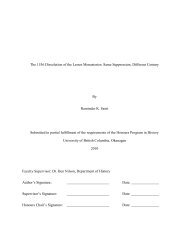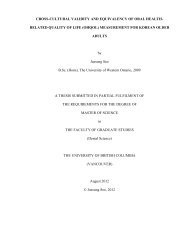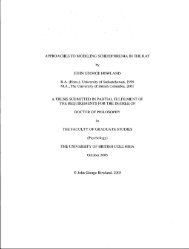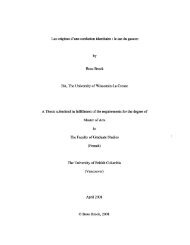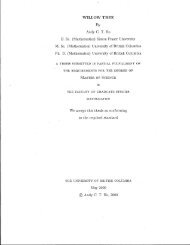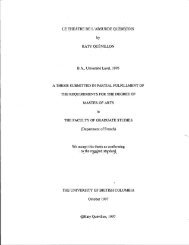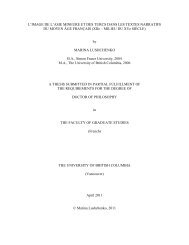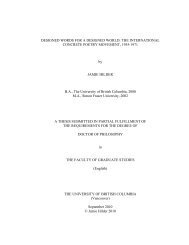A STUDY OF THE THEORY OF APPRAISAL FOR SELECTION By ...
A STUDY OF THE THEORY OF APPRAISAL FOR SELECTION By ...
A STUDY OF THE THEORY OF APPRAISAL FOR SELECTION By ...
Create successful ePaper yourself
Turn your PDF publications into a flip-book with our unique Google optimized e-Paper software.
CHAPTER 3:<br />
BRITISH TRADITIONS <strong>OF</strong> <strong>APPRAISAL</strong><br />
The public records of England and Wales . . .<br />
. are vitally important for the knowledge and<br />
understanding of British society, its<br />
organisation and functioning.<br />
The Wilson Report, 1981.1<br />
Traditions of appraisal in England have developed from the<br />
mid-nineteenth century to the present, and are remarkably<br />
cohesive, unlike traditions in continental Europe. Central to<br />
appraisal theory is the concept of the preservation of the<br />
archival nature of records, the use of administrative value to<br />
identify historical value, and an abiding concern for the<br />
research interests of the user community. As in the traditions<br />
in continental Europe, questions are raised about the relativity<br />
of value, and calls are made for the need to maintain the<br />
impartial perspective of the archivist. While the principle of<br />
provenance is never referred to, the use of structural analysis<br />
is evident in the British insistence on defining "administrative<br />
value" as the key to select records for permanent preservation.<br />
The following discussion will focus on the two most important<br />
theorists who developed these ideas, Sir Hilary Jenkinson and Sir<br />
James Grigg. Because of the significance of their contribution<br />
1 U.K. Modern Public Records: Selection and Access, Sir<br />
Duncan Wilson, Chair, Qnnd. 8531 (1981), 3, paragraph 1.<br />
Hereafter referred to as Wilson Report.<br />
57



